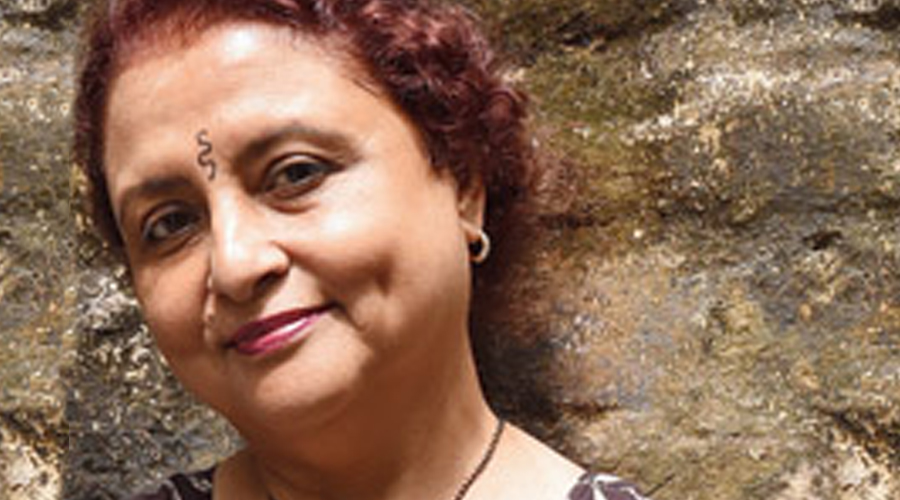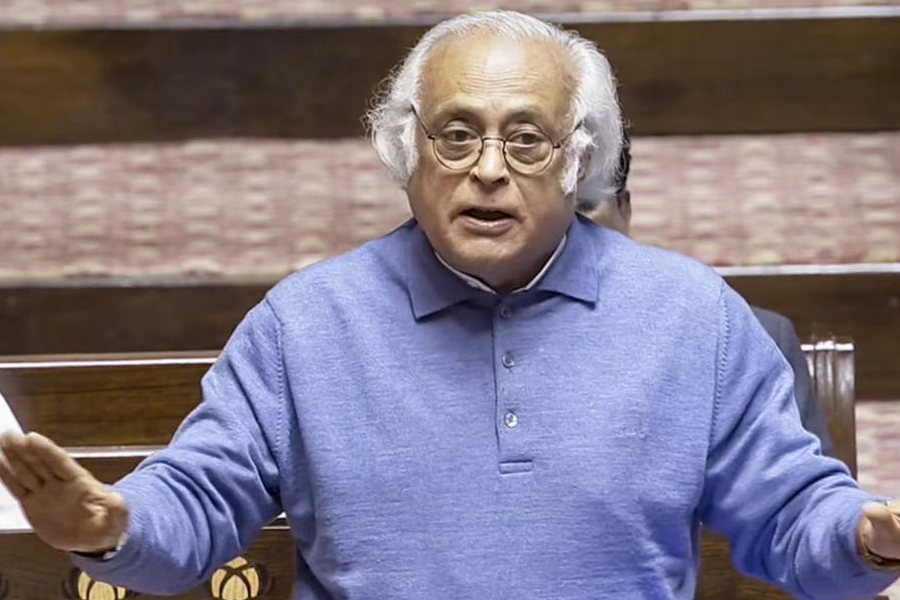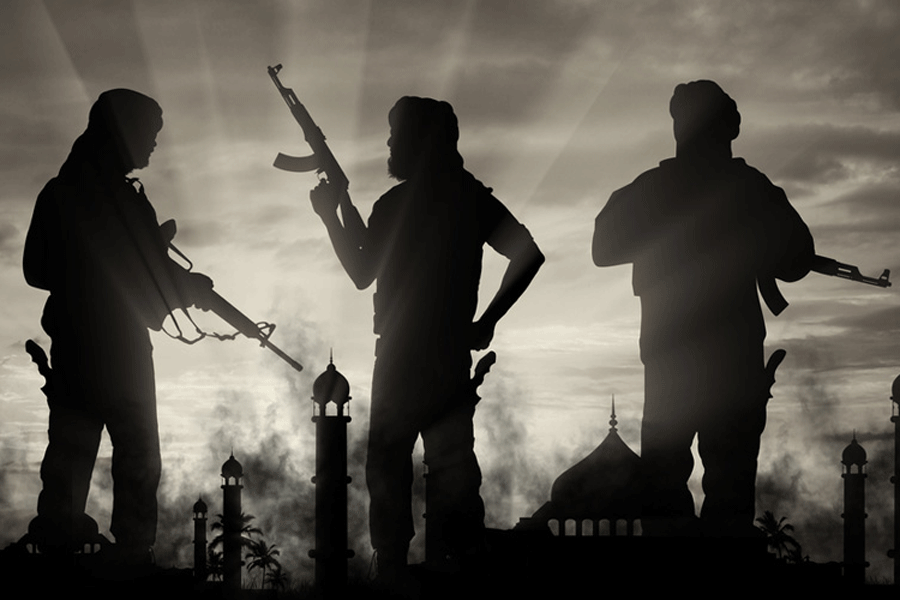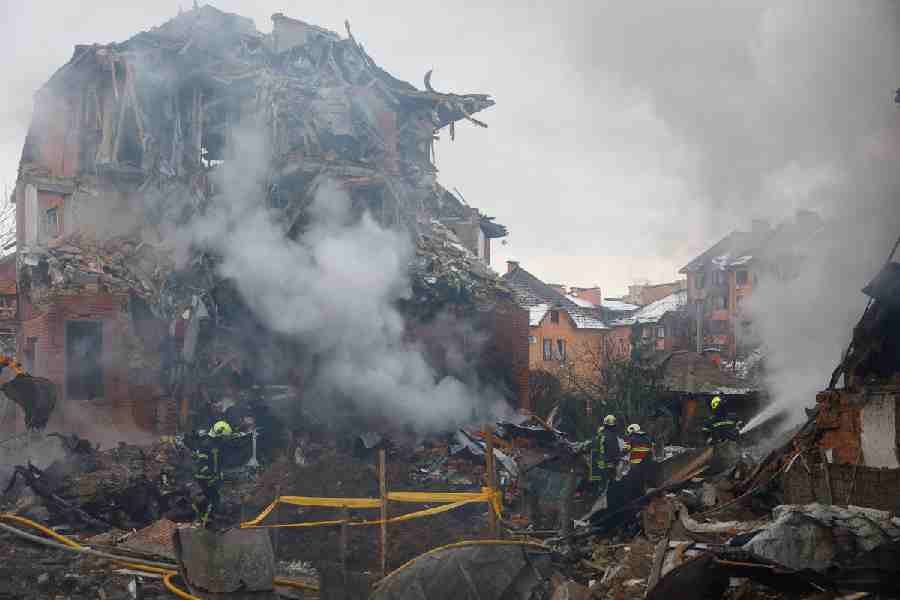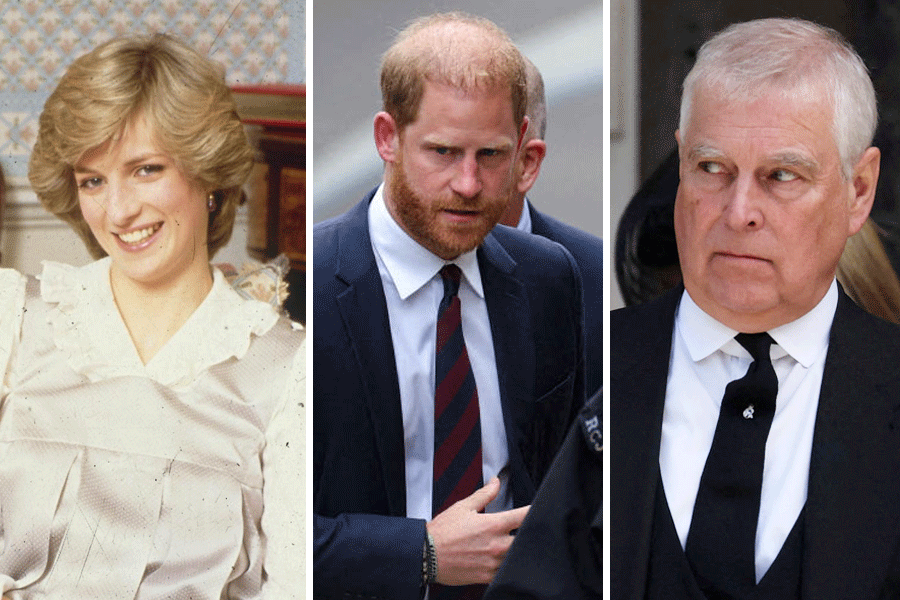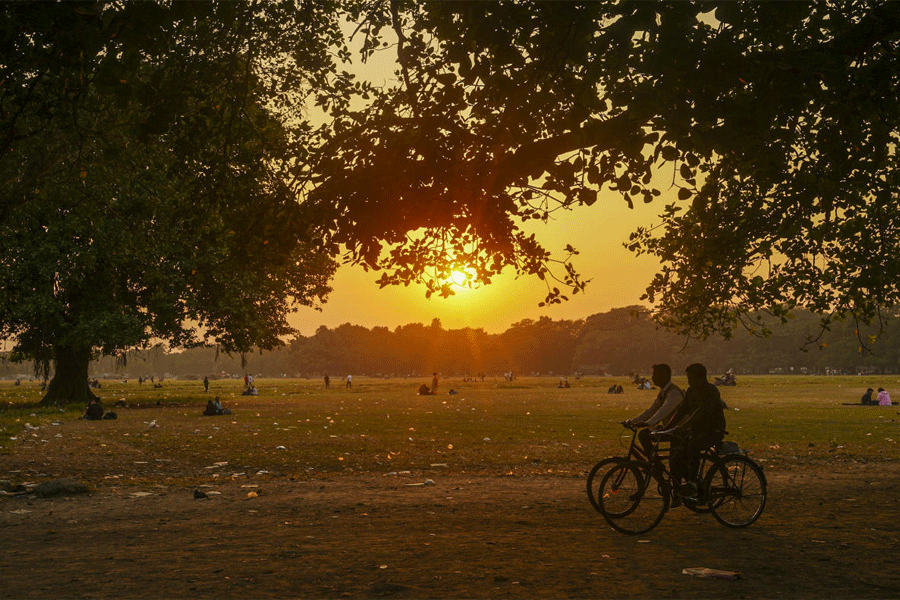On her birthday, Nandita Roy tells The Telegraph how the pandemic changed her as a film-maker.
Happy birthday! What’s your fave childhood birthday memory?
I used to love having kalo jaam mishti as a child. It is like gulab jamun, but has a hard crust outside and is spongy inside. I grew up in Bombay and it was very difficult to find Bengali sweets there. There were a lot of sweet shops in Khar and I used to live in Vile Parle. It was a few stations away from where we used to live. But because I loved that sweet, my father made it a point every birthday to bring those sweets for me and I used to love that.
What are some of the things you must do on this day?
I love to take all my dear friends, my near and dear ones and my close family and go to the hills to celebrate my birthday. I try to do it every year but I do not succeed every year. I could not do it last year and can’t do it this year either. I did it the previous year.
So, what are your birthday plans this year?
Shooting, shooting and shooting (laughs). I think we have to skip the celebration this year because we will be very busy shooting.
What is your birthday wish for this year?
I really want the entire humanity to be so happy and so joyous and celebrate every day of each of their lives as if it was their birthday.
Last year all of us went through various kinds of experiences. How did you deal with the pandemic?
Initially, I was staying by myself. So, I learnt to look after myself and felt very independent. I had no house help to look after me, cook for me or clean my house. But it was a very liberating experience, I loved it. I loved doing everything on my own. I was cooking for myself exactly what I love eating. I didn’t have to answer to anybody.
I got up when I wanted to. Initially, I used to clean all the rooms. I live in a big house and live alone, so I used to clean all the rooms in one day. Then I started cleaning one room at a time. And it was fun, I enjoyed it. But later on Shiboprosad would not let me live by myself. He was concerned. So, he took me to his home. Then I started living with his family and that was so enjoyable. We shared duties. One of us would cook, one would wash, one would look after the house and it was fun.
I think, there were two sides to the pandemic. We lost our loved ones. There were personal losses for me too. In my family, some very close ones suffered from Covid. My son and my husband could not be here with me. It was an anxious time. And I wouldn’t like to go through it again. But it taught us a lot of things too. It taught us family values, it taught us about bonding. It taught us to think about each other, something which we have been neglecting.
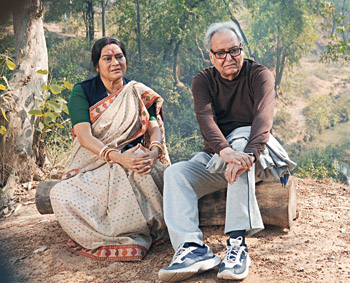
A moment from Bela Sheshe directed by Nandita Roy and Shiboprosad Mukhopadhyay
What were some of the most important realisations for you?
We are so wrapped up and caught up in our own lives that we forget to look outside our own world. We had not appreciated nature for a very long time. We had forgotten the calls of the birds. So, all of it started coming back. We started appreciating silence. It was so vital. Everything was so quiet and silent. There were a lot of ups and downs. The pandemic taught us a lot of things. It taught us values. It taught us to care for people. It taught us to appreciate what we have. And it taught us to nurture and look after it. I have learnt my lessons. And I think I will be more efficient in the future.
Did the pandemic in any way change you as a film-maker?
Yes, it of course did. It taught me to appreciate things. I saw the world in a new light. I saw people in a new light. I found human beings to be so warm and endearing. Some people were going out of their ways to sacrifice. It was so touching. How they fought, struggled and survived. It taught me to look at things in a new way. So, as a film-maker, I think I learnt a lot. I learnt about the people around me. I learnt about my health workers who went out there and devoted their lives to serve humanity. I salute all of them. I was in my safe environment, but they were out there fighting. I was so proud of Nigel Akkara. He is so close to me. During the pandemic, he was out there battling it. He was sanitizing everything. He was in the malls, in the hospitals. He did everything on his own. I admire him so much for it. My respect for him grew by leaps and bounds. I looked at him in a new way. It was so wonderful, I saw so many wonderful people around me. As a film-maker, I have to keep my eyes and ears open. Our stories are stories where people can feel and say, ‘This is my story.’ Until I reach out to them, touch them, feel them and their pain, feel their pleasure and moment of anxiety, I cannot tell their story. There were so many stories.
What are your thoughts on the future of Bengali films in theatres?
Frankly, I am excited and anxious because we have some lovely films which we want to show to the people, like Bela Shuru. It is Soumitra Chatterjee’s last film as a hero, as a central character and I am dying to show it to people. I just want to go out there and tell people to come and watch it in the theatres. And we have Lokkhi Chhele. It is one of Kaushik Ganguly’s best films and I want people to come to the theatres and watch it. But I am not certain that people are confident enough to go to the theatres and watch films. They are going everywhere, to the malls, restaurants, and markets. Then why are they scared of going to cinema halls? We are making films that would provide the same kind of pleasure and entertainment.

